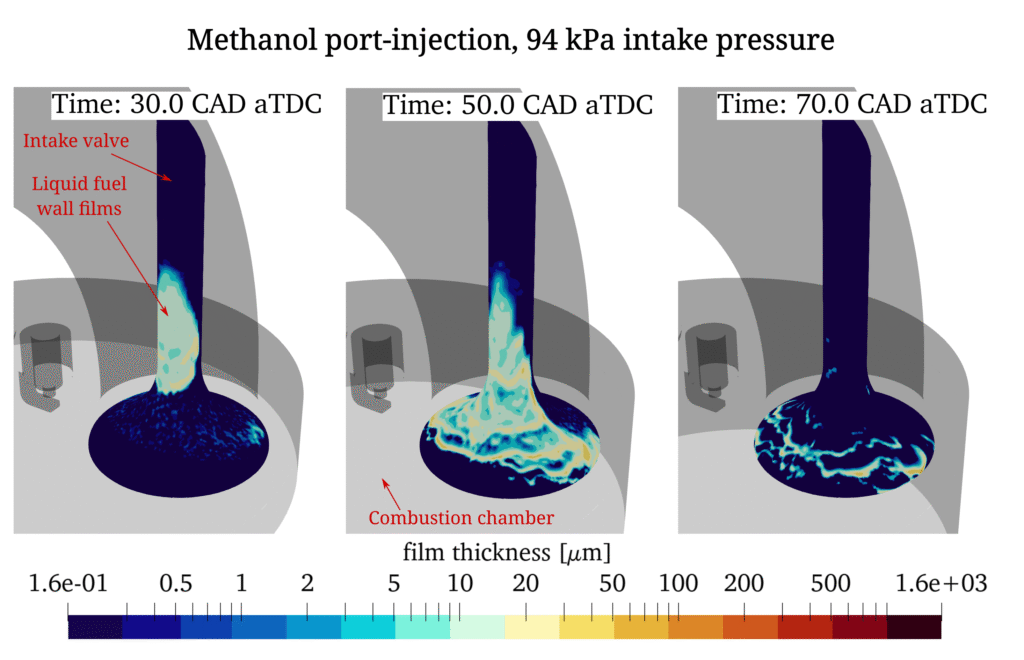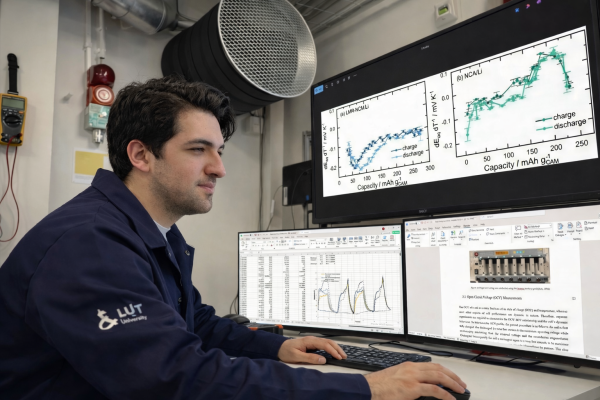Otto shares that his background in energy conversion and computer sciences naturally guided him toward research in clean propulsion technologies. During his master’s studies at Aalto University, he gained interest in computational fluid dynamics (CFD), a field which brought these two interests together. He carried out his thesis within the Energy Conversion and Systems research group at Aalto University, under the supervision of Professor Ossi Kaario and with guidance from Dr. Atmadeep Bhattacharya.

The focus on methanol is explained by Otto: “Methanol is considered a sustainable alternative to gasoline, as it can be produced from renewable feedstocks. Although methanol has already seen use in engines, it has not yet been widely adopted. Its properties differ from gasoline, leading to increased engine cooling and poor fuel vaporisation. These have been linked to engine startability and performance issues”. Approaching the study numerically has its own advantages: “Numerical methods, such as CFD, are especially useful here, since experimental study of intake wall films is often difficult without optical engines. Of course, numerical studies need validation to ensure their accuracy, but they also allow us to explore a wide range of parameters”, he explains.
There were unexpected technical challenges associated with OpenFOAM. Otto recalls: “The build I used missed crucial features for wall film modelling on moving surfaces. This was a major obstacle in simulating the moving intake valve, which turned out to be an important site of wall film formation. The solution was to simplify, by assuming the valve was static. While the problems reduced the scope of the planned parameter sweeps, the simulations were still successful and allowed for meaningful conclusions.”
Despite the lack of direct experimental comparison, the study still demonstrated the general behaviour of methanol and its wall films, offering useful insights for future experimental and numerical research. It also highlighted the importance of accurate wall temperature modelling and introduced a workflow for OpenFOAM at a time when very little work on port fuel injection wall films had been done with the software. “The main contribution of the work is to support future studies, which I hope can build on this foundation” Otto notes.
With the thesis now completed, Otto is considering the next steps in his career. His experience with numerical modelling, open-source CFD, and engine simulation has positioned him well to contribute to ongoing research or industry development in the field of clean propulsion. He plans to continue working in engine research using CFD, building on the knowledge and strong foundation gained through the thesis, and he is also interested in advancing numerical tools and models to make such studies easier in the future. “I hope this will make performing similar research much more straightforward” he says.



